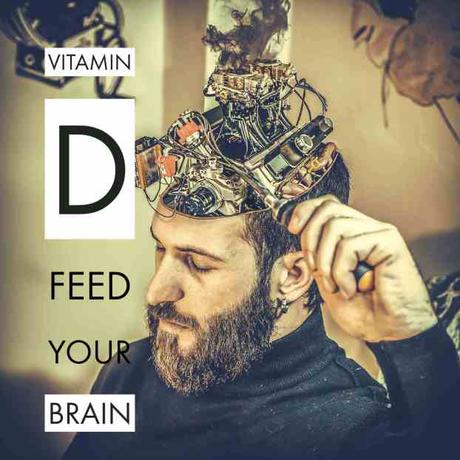
One detail Gary's neuropsychologist recently brought up was his low vitamin D level. Everyone knows calcium and vitamin D help maintain healthy bones, but we had no idea the role it plays in cognitive decline. Studies found patients with a vitamin D deficiency experience faster declines in both episodic memory and executive function. Patients are also seen to underperform on one or more cognitive function tests and have a higher diagnosis rate of mild cognitive impairment (MCI) or early dementia.
A blood test now gives your health professional a simple yet reliable tool to identify at-risk patients. A vitamin D deficiency can be corrected if found early, with a good chance progression from MCI to dementia will be slowed or avoided.
Natures Vitamin Store
The dangers of sun exposure and skin cancer have us all aware of the importance of regularly wearing sunscreen. What no one told us is while we practice good skin health we are also blocking our prime source of vitamin D. If you mix in low absorption from diet sources, seasonal or geographical limitations to sunlight, then you may be headed for vitamin D deficiency.
Vitamin D2 or D3?
Vitamin D as a supplement is available in two formulas. Ergocalciferol (Vitamin D2) comes from ultraviolet irradiation of the ergosterol in yeast. Vitamin D2 is the most common form offered by retail sources.
In the past, a physicians first choice was ergocalciferol for vitamin D deficiency. But studies have proven Cholecalciferol (vitamin D3) to be more potent, longer active life and closer to naturally synthesized vitamin D3. Modern formulas come from irradiation of 7-dehydrocholesterol from lanolin and chemical conversion of cholesterol.
Ergocalciferol (vitamin D2) and cholecalciferol (vitamin D3) are not bioequivalently interchangeable. Research now proves ergocalciferol potency is less than 30% of cholecalciferol and peaks at day three. Vitamin D3 levels will continue to increase past day three and peak at day fourteen. Potency is an important consideration when your goal is to stem the cognitive decline.
What to do if you're at risk
Gary has been taking a daily dose of 2,000 units of Vitamin D3 since early November. His PCP had his levels checked last week, 90 days since his prescription and found while he is improved it's still at the low end of normal. His doctor increased his dose to 4,000 units daily and suggested taking it with a meal or whole milk. Gary had been taking it in the evening but since vitamin D is fat soluble changing his schedule to mealtime should help his body absorb it.
If you have been diagnosed or at risk for developing mild cognitive impairment, the best choice would be a visit to your physician. It is possible to overload yourself, so a blood test is a simple and quick means to determine what your vitamin D level is. It may be time for a discussion about supplementing your intake.
About roriandgary
Our life after a diagnosis with the rare disease superficial siderosis. We share our thoughts on how we deal with the clinical symptoms and life changes that come with a chronic illness.

